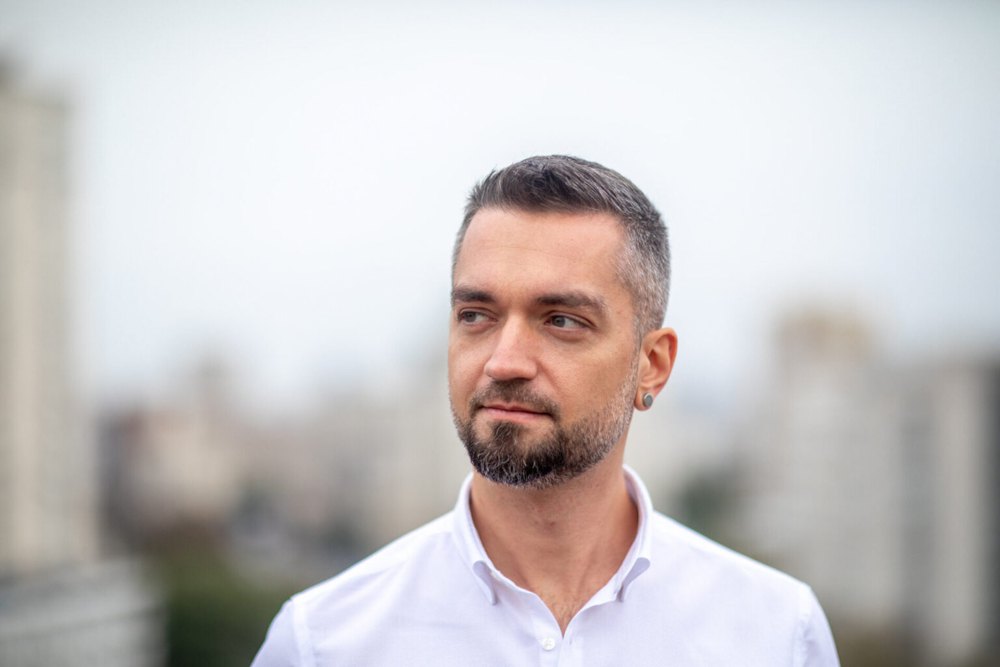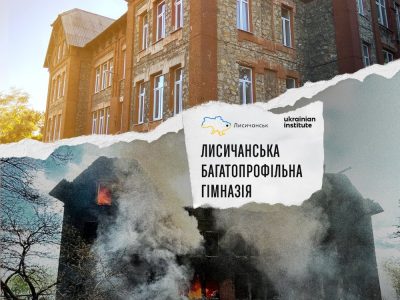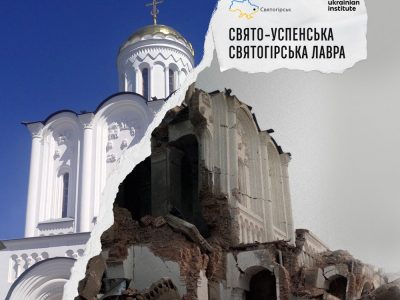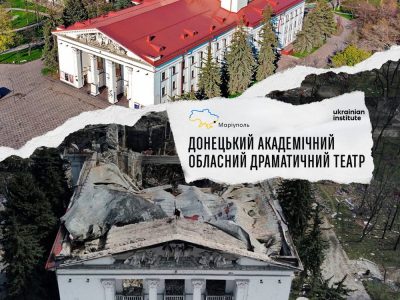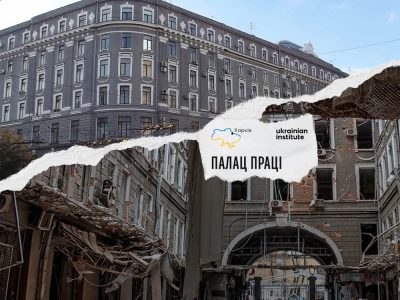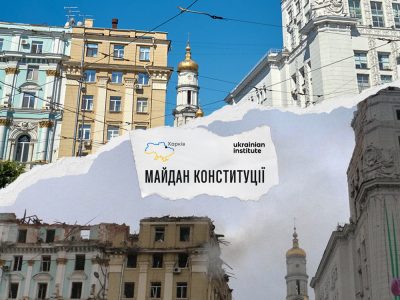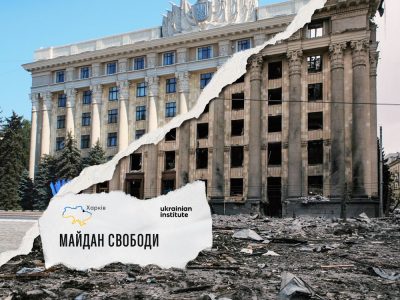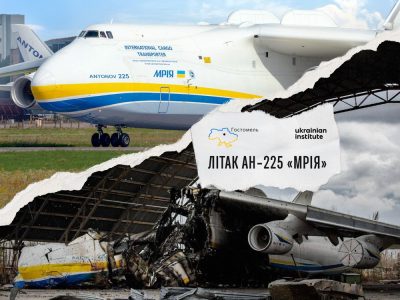Volodymyr Sheiko: "Ukrainian culture will come out of this war very scarred"
With the beginning of the full-scale invasion, the importance of cultural diplomacy became clear even to people who had never thought about this before. Ukrainian artists, writers, musicians, directors, and actors are now working abroad tirelessly, focusing attention on Ukraine and talking about it in the language of culture and art. A leading role in this process is being played by the Ukrainian Institute, our analogue of the British Council or the Goethe Institute, which was established on a wave of post-Maidan reforms aimed at promoting Ukrainian culture abroad. We spoke with Volodymyr Sheiko, the permanent director of the Ukrainian Institute about debunking the myth of the exclusive greatness of Russian culture, the features of cultural diplomacy in wartime, and the future of Ukraine's cultural sphere. Below is the transcript of our conversation. You can listen to the podcast that was recorded for Radio Ukraine, which broadcasts from Prague, on the program "An Hour with Sonya Koshkina."
Mikhail Piotrovsky, the director of the Hermitage Museum in Russia, in an interview with Rossiiskaya Gazeta (Russian Newspaper), bluntly declared that for Russia, culture is a weapon. He expressed exactly what Ukrainian cultural figures have been trying to tell their Western partners since the start of the war, and for their trouble, they were called radicals. Tell us about the response that was prepared by the Ukrainian Institute.
This interview was a real godsend for all of us, even though it is extraordinarily difficult to read it because it is a concentration of all the chauvinistic, xenophobic, and aggressive messages that Russian culture is putting out. It was a godsend because, finally, a key representative of the Russian cultural sphere spelled out exactly what the gigantic Russian propaganda machine is promoting, especially through Russian cultural diplomacy.
He openly admitted that all of Russia's cultural figures are imperialists and militarists and that, for Russia, war is the nation's self-affirmation. That the Hermitage's exhibits abroad are a "special operation" along the lines of what Russia is supposedly conducting in Ukraine. These are incredibly disgusting statements that, in our opinion, should lead foreign partners simply to reject cultural cooperation with Russia. And that was the main message of our statement.
We issued several such statements, and there has been a reaction to them — a mixed one. Some people understand our arguments and are ready to abandon cooperation with Russia. But many institutions, especially in Germany or France, still do not comprehend Ukraine's calls for suspending cooperation with Russia — obviously because Russia's presence there has been historically deeper and stronger, so not everyone even understands why Ukraine is requesting such things right now.
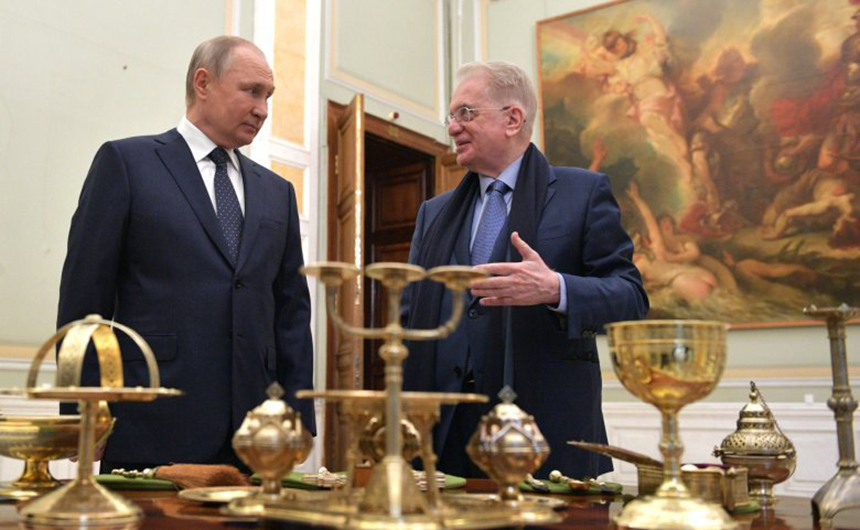
What do you mean when you talk about suspending cooperation? Who is this suspension supposed to affect?
We are talking about the need to terminate any and all joint projects with Russian state institutions, as well as those that are supported directly or indirectly by the Russian state or oligarch capital. We are also calling for all international concert halls, festivals, and other cultural venues to suspend the staging of works by Russian directors or composers. This can demonstrate solidarity with Ukraine and also — finally — open up space in repertoires and programming policies to Ukrainian culture, which for the most part has been invisible or simply uninteresting to many people.
The false myth about the absolute grandeur of Russian culture is still dominant in the West, and we see that even top-class specialists are in thrall to the illusions and obsolete stereotypes that they acquired back in university or from other types of professional experiences. According to these illusions, Russian culture is better than the culture of adjacent countries. That is why our message is encountering resistance and a lack of understanding. This resistance is also based on ordinary business interests. For example, eliminating composers' works from concert programs or canceling the staging of Russian operas mean direct losses resulting from a breach of contract and ticket refunds.
Give us some examples of where the Ukrainian Institute's appeals have worked and where they haven't.
Our Polish colleagues actively heeded the calls of the Ukrainian Institute and similar appeals that many other Ukrainian cultural figures are spreading abroad. Polish symphonies and concert halls began to exclude Russian music en masse from their repertoires. The same goes for many foreign film festivals, which disinvited Russian directors or at least did not put Russian speakers on the same panel discussion as Ukrainian ones.
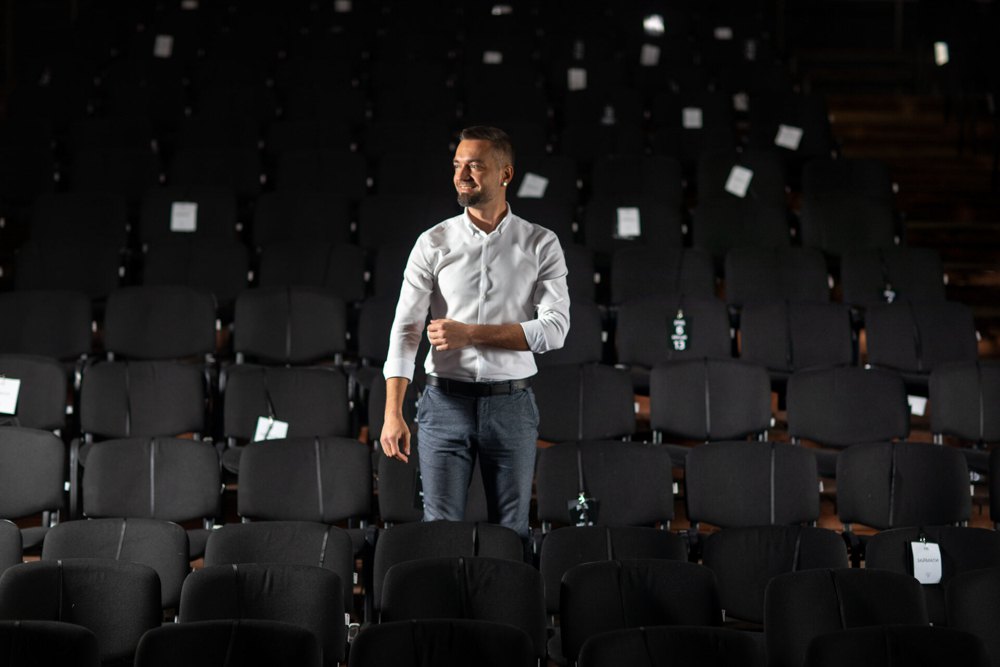
This year's Cannes Film Festival is a big example, both successful and unsuccessful. In response to our appeal, it renamed the festival's opening film. It was supposed to be titled Z, so we asked the director Michel Hazanavicius, as well as the management of the festival, to rename it. We explained that the letter Z is the symbol of Russia's war in Ukraine, so it is unacceptable, especially right now, to release a film with such a title. Fortunately, the director acceded to our request and expressed solidarity with Ukraine. We succeeded in correcting this unfortunate coincidence.
At the same time, the Cannes Film Festival allowed the Russian director Kirill Serebrennikov to take part in the Cannes Film Festival, which refused to exclude his film Tchaikovsky's Wife. This unleashed a great wave of indignation among the members of the Ukrainian filmmaking community. The director of the Cannes Film Festival responded to our request concerning this film by calling us radicals and ultras — and to be honest, we were very flattered. The film remained in the program. However, it was a good thing that Serebrennikov got an opportunity to speak out because he used his press conference in Cannes, not in order to condemn Russia's war against Ukraine, but to appeal to the international community to lift the sanctions against Abramovich, the oligarch and to complain about the difficult lot of Russian artists who cannot go to McDonald's or use their bank cards abroad. This was an eloquent example of the fact that even so-called opposition figures in Russian culture cannot be regarded as "good Russians."
Let's talk about the latest projects of the Ukrainian Institute. This year Serebrennikov opened the annual festival in Avignon. But we are more interested in the Ukrainian pavilion and its program, which you prepared.
The Festival d'Avignon may be compared to the Cannes Film Festival by its importance for the theater industry, performance arts, and contemporary tango. This year, with the support of the Institut français and several other French partners, we managed to organize the Ukrainian pavilion there. Under this name, we held a broad program of discussions and recorded and live screenings of Ukrainian performances. There were also lectures and presentations. Fortunately, our theater people were able to travel to Avignon and do an admirable job of showcasing Ukrainian art. I must say that this was unimaginable half a year or a year ago. Right now, a lot of doors that were previously closed have opened up to Ukraine.
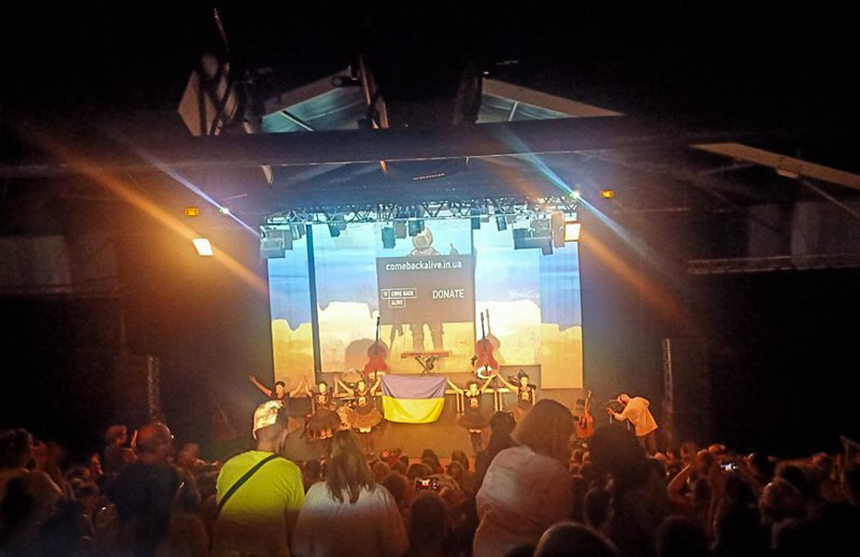
How has Ukrainian cultural diplomacy changed since the start of the great invasion? And how can we capitalize on the opportunity offered by these open doors?
After 24 February, Ukrainian cultural diplomacy changed simultaneously in two directions. First, the world finally discovered Ukraine. On 24 February alone, a fantastic number of people realized the fact that Ukraine exists. So, now the goal of cultural diplomacy is to satisfy the huge demand for knowledge about Ukraine, contacts with Ukraine, and Ukrainian culture, which has appeared all over the world, especially in Europe and North America.
On the other hand, it should be understood that at the present time, state investments in the cultural sphere have been suspended because these expenditures are going for the army's needs and the social security of citizens. In other words, we are working in the conditions of a lack of funds for such activities. We are helped by foreign partners, who are either providing additional funding for our projects, or undertaking full funding, or creating various programs to support Ukrainians, from which the Ukrainian Institute also benefits. We have succeeded in sustaining nearly 80 percent of our projects planned for this year, including the UK/Ukraine Season of Culture 2022, as well as introducing quite a few new projects that are already directly addressing the challenges and context of the war.
For example, we have a project called "Postcards from Ukraine." It is devoted to Ukraine's architectural heritage that has been destroyed or damaged after 24 February. This big international campaign, financed by USАID, is designed to draw the world's attention to the phenomenally valuable architectural and cultural monuments that are currently being destroyed in Ukraine, and to show how, because of this, the whole of Europe is losing an important part of its cultural heritage.
Ukraine war fatigue is starting to set in, and the doors open to Ukraine are gradually beginning to close. This is an objective factor; it pertains to the political, economic, diplomatic front, and, of course, the cultural one. Have you made plans about how we can combat this fatigue, how to maintain international interest in Ukraine?
I think that the most realistic way to sustain it is through culture and art. Because even superficial analysis of the media sphere tells us that right now, the number of times Ukraine is mentioned has decreased tenfold compared to February and March. But this fatigue can be prevented if we do not talk about ourselves exclusively from the position of victim. If we inundate people every day with photographs from the front, this truly exhausts them. But this is not the only part of the Ukrainian story today. We also have a history of struggle, of heroism, of a fantastic social solidary. And this is part of our dynamic and creative culture. We should present this culture — which is very consonant with the world — as broadly as possible because it can astonish and impress and be competitive. This does not cause fatigue. On the contrary, it entertains and fascinates, and allows us to keep people's attention on the wave of solidarity with Ukraine.
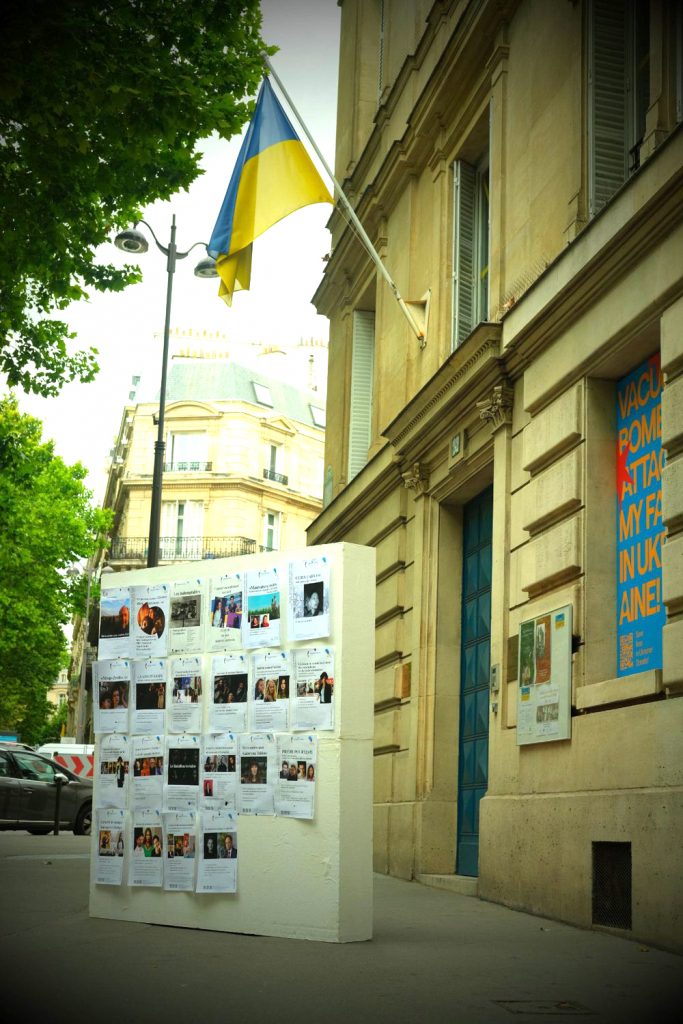
We don't know when the war will end, but we hope that it ends with our victory. What will Ukrainian art and culture be like after the war? What will the new communication with European countries be like?
This is a huge question. I think that Ukrainian culture will come out of this war very scarred. Many projects are on hold today; many cultural figures have left Ukraine. And I don't know for sure when they will come back home. We will be living in an economic recession for a long time to come, and culture is always the first to be cut in dire economic conditions. But at the same time, I think that our artists are already prepared to comprehend this war through literature, cinema, and contemporary theater. As it turns out, we are quick at doing this.
Our partners from Germany, Austria, and France are amazed that the Ukrainian cultural sphere is able to react so quickly to what is happening in the country. As a rule, they say that they would be considerably more passive in our place. This quality of ours is very attractive to them. I think that among these artistic expressions, which partly serve as art therapy for artists, their personal way of surviving this tragedy, will be many genuine pearls that will be able to do a worthy job of presenting Ukraine to the world. We really want the film production and theatrical processes not to be interrupted for a long time, because interruptions do serious damage to the entire sphere. People need work; the opportunity to work is crucial. Then we will have something with which to go out into the world.
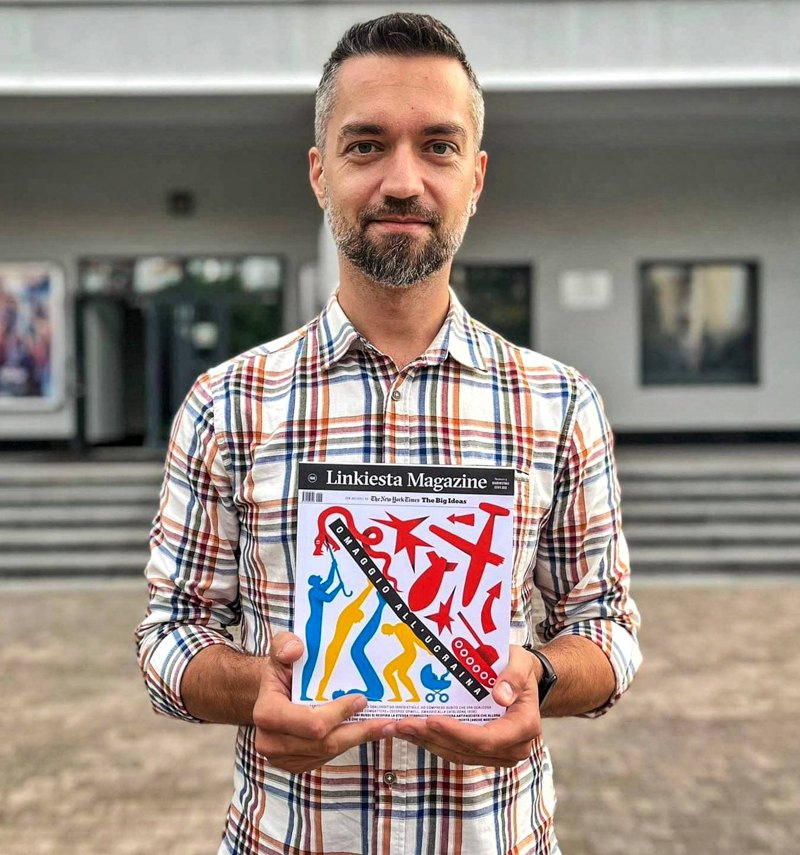
Right now, a lot of rapid-response art, so to speak, has appeared. This brings up the question of how adequate the creative treatment of the war can be right after it ends. Recently, we talked about this with Serhiy Zhadan, who said that excellent, large texts about the war cannot appear quickly; some time must pass. Where the Second World War is concerned, important books about it appeared after five to ten years.
Serhiy is absolutely right in saying that large-format texts can appear only in due course, once an author finds the words to interpret the experience of this war. At the same time, we see other examples in other forms, for example, contemporary theater. We have the Theater of Playwrights, which was supposed to open in Kyiv sometime at the end of February or the beginning of March. Right now, it is located outside the city. It has gathered around itself a large number of young Ukrainian playwrights who have already written a substantial number of texts during the war, which interpret this new experience here and now. The value of these texts lies in their connectedness to the moment.
There is also documentary filmmaking, which is recording this war; this, too, is very valuable artistic material. One example is the film Mariupolis 2 by the Lithuanian director Mantas Kvedaravičius. He died tragically during the siege of Mariupol, but during the first weeks of the war, he managed to film the continuation of his earlier documentary film about the city of Mariupol after 2014. Mariupolis 2 became a bridge spanning both shores of this tragedy, and we are supporting its airing and urging our foreign partners to see it because this is current material in our country here and now.
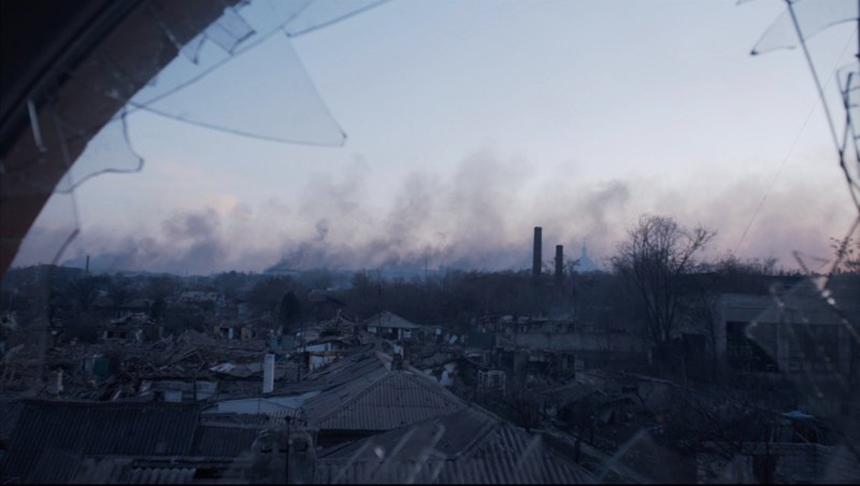
You mentioned this year's UK/Ukraine Season of Culture 2022. What goes on during the season? What events have been planned?
We, in cooperation with the British Council, pegged this cultural season to the thirtieth anniversary of the establishment of diplomatic relations between our countries. We conceived it two years ago and are very happy that it is being held even during the war. In fact, this will be a kind of Ukrainian artistic intervention into Britain's key cultural events. For example, Ukrainian projects will be presented at the Edinburgh International Film Festival, the Huddersfield Literature Festival, and the Sheffield DocFest. We have planned over two dozen such events; they will take place in various cities and in various venues in Britain. I think that this will be the first large-scale Ukrainian intervention in this country.
British culture has been well represented in Ukraine, especially thanks to the efforts of the British Council. Ukraine is taking this step only now, but in the circumstances where Britain is one of the most reliable and most zealous partners in terms of economic, political, and military assistance. I think that this season fits into this bilateral solidarity in a very timely fashion; it is allowing British society to finally gain a better understanding of whom it is supporting.
You are also conducting joint literary projects with the Czech Republic. This is interesting because there is a large community of Ukrainians in that country who have migrated there temporarily.
I hope that this community is familiar with at least one of our projects: the Ukrainian booth and program at Svět knihy (Book World). This is the largest book fair in the Czech Republic, which takes place in Prague. This year, we created a booth together with a number of Ukrainian partners and with the support of our Embassy in Czechia, which showcased contemporary Ukrainian literature, translations, and musical performances. We held discussions about the situation in Ukraine. It was a good, comprehensive program that we hope to repeat next year. In addition, since 2020, we have been working with the Czech festival Noc Literatury (Literature Night), which popularizes contemporary European literature. We are glad that Ukraine has been participating in it for the past several years.
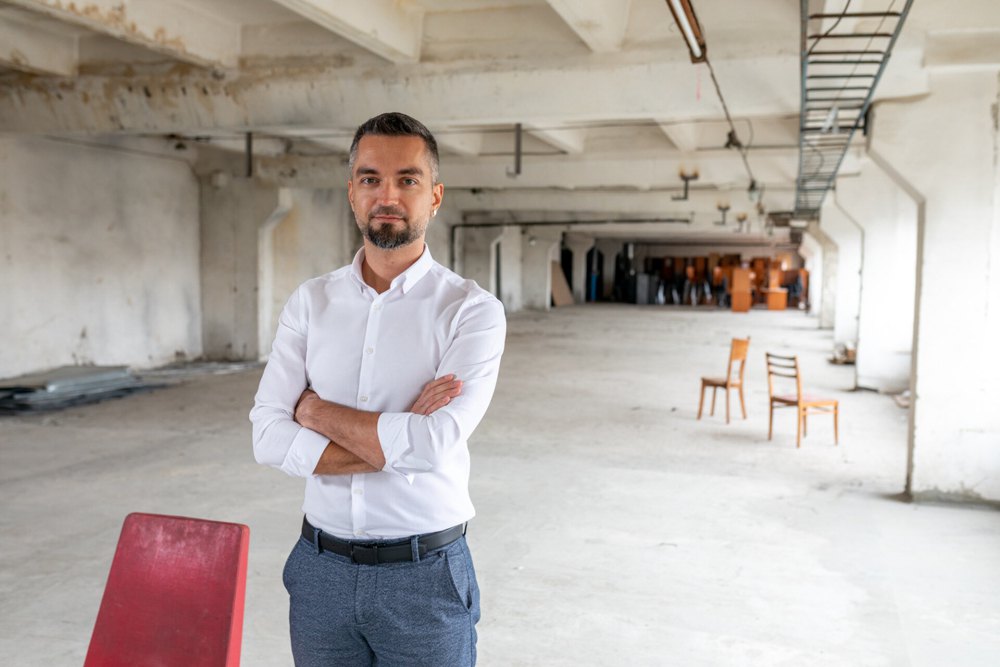
Along with the increased presence of Ukraine, there is the question of the presence of Russian culture in Europe. Russian cultural funds, like the Alexander Gorchakov Public Diplomacy Fund, have been operating for quite some time and are foisting their narratives. What do we do about this?
It is precisely in order to understand how to deal with this that for the past several months, we have been doing research on the three pillars of Russian cultural and public diplomacy — propaganda, in fact. They are Rossotrudnichestvo (Russian Cooperation Agency); the Russkiy Mir Foundation; and the Alexander Gorchakov Public Diplomacy Fund. They are either state organizations, or they are masking themselves as civic organizations. Nevertheless, they are fully controlled and financed by the Russian regime. They work with various auditoria and promote their toxic narratives through culture, through youth exchanges, through their support of scholarly cooperation — even by holding events that take place on a high political level.
For example, one of these foundations organizes the so-called Potsdam Conferences in Germany. This is a dialogue among countries under the patronage of the Ministry of Foreign Affairs, which is attended by leading experts in politics, culture, and civic society. At these meetings, absolutely destructive narratives are put forward under the guise of a dialogue about the new architecture of European security or inter-cultural dialogue.
In addition, these foundations finance a large network of other civic organizations and cultural institutions. On our part, we publicize the results of this research, thoroughly deconstruct this work, and address an appeal to all the recipients of grants and all the partners of these foundations: Look at what you're doing. See how you are, in fact, taking part in this Russian propaganda machine, which is fueling the war in Ukraine. Of course, we cannot directly influence their decisions; that is not our mission. But at least we are exposing this activity and revealing its true face.
Sonya Koshkina, Editor in chief of LB.ua
Кsenia Bilash, editor of the "Culture" section
Originally appeared in Ukrainian@lb.ua
Translated from the Ukrainian by Marta D. Olynyk.







